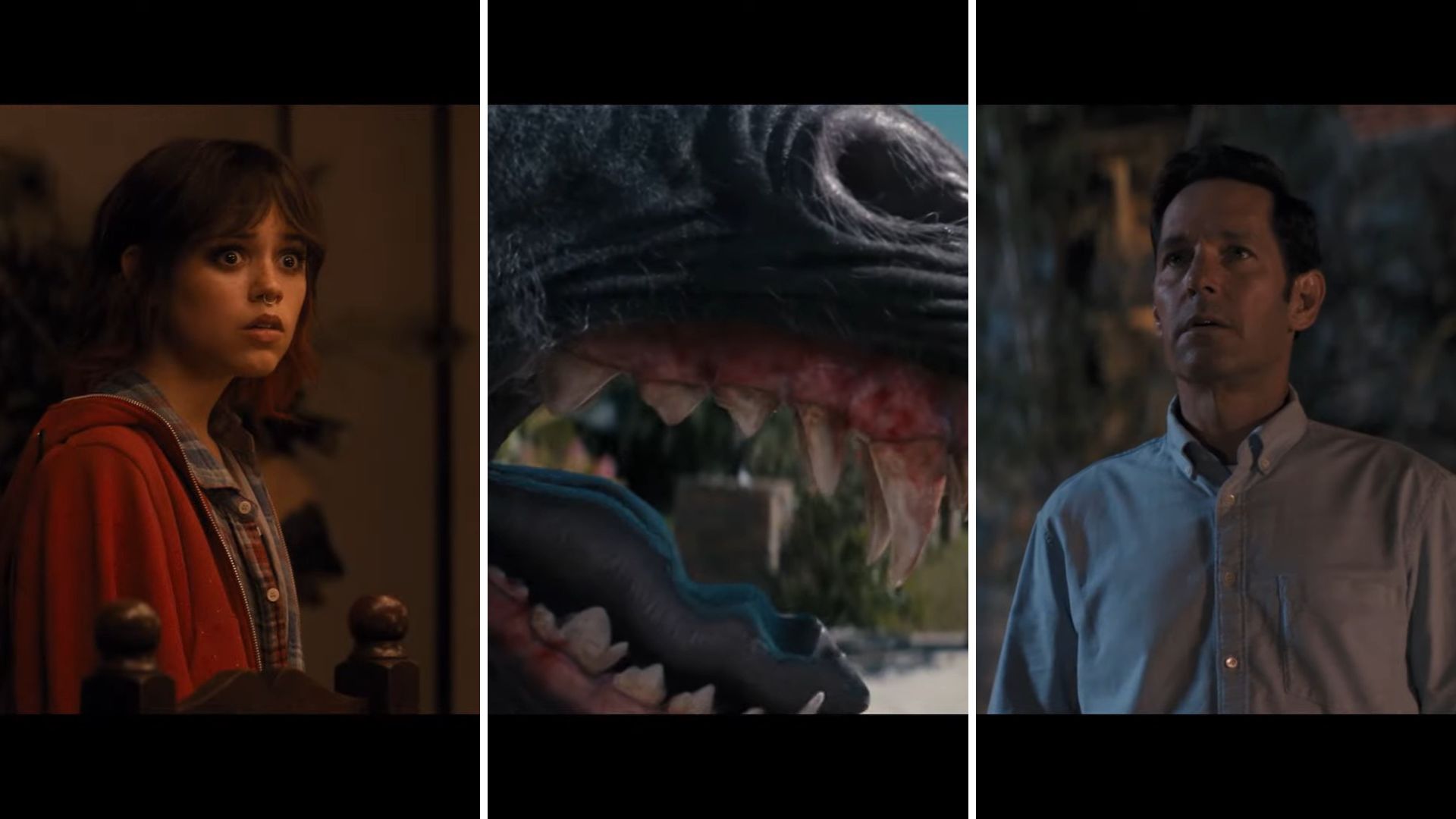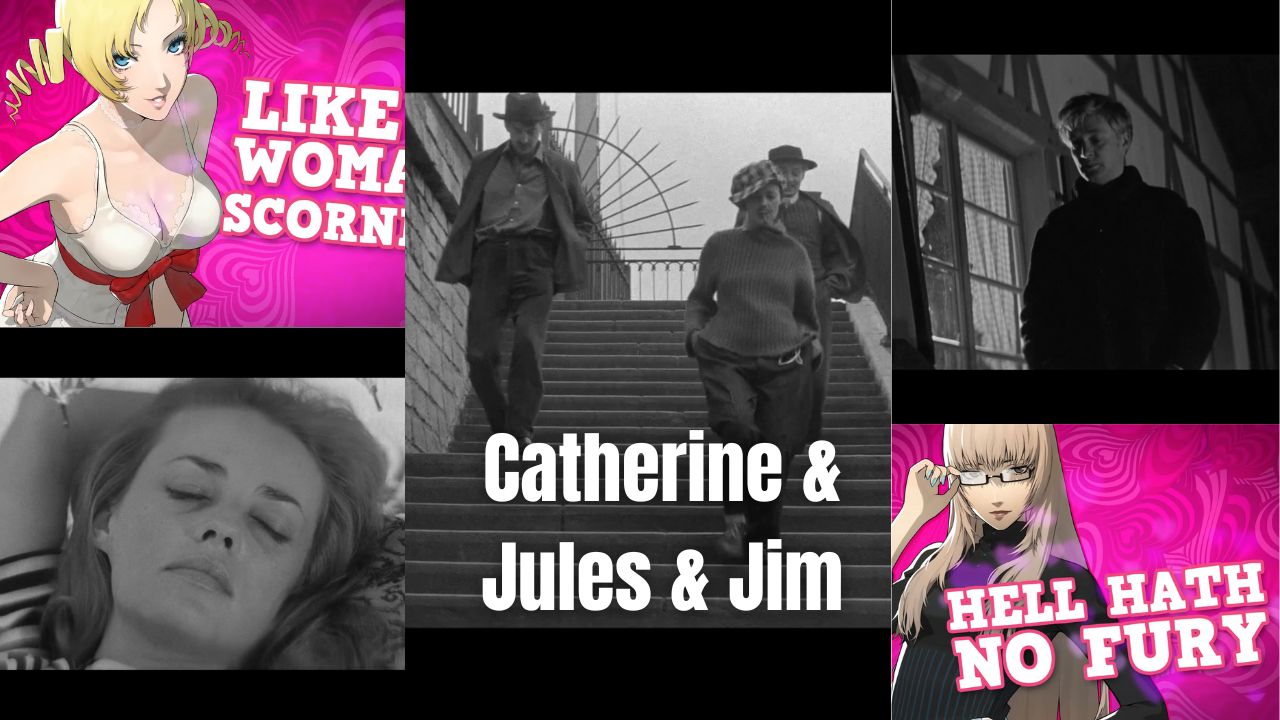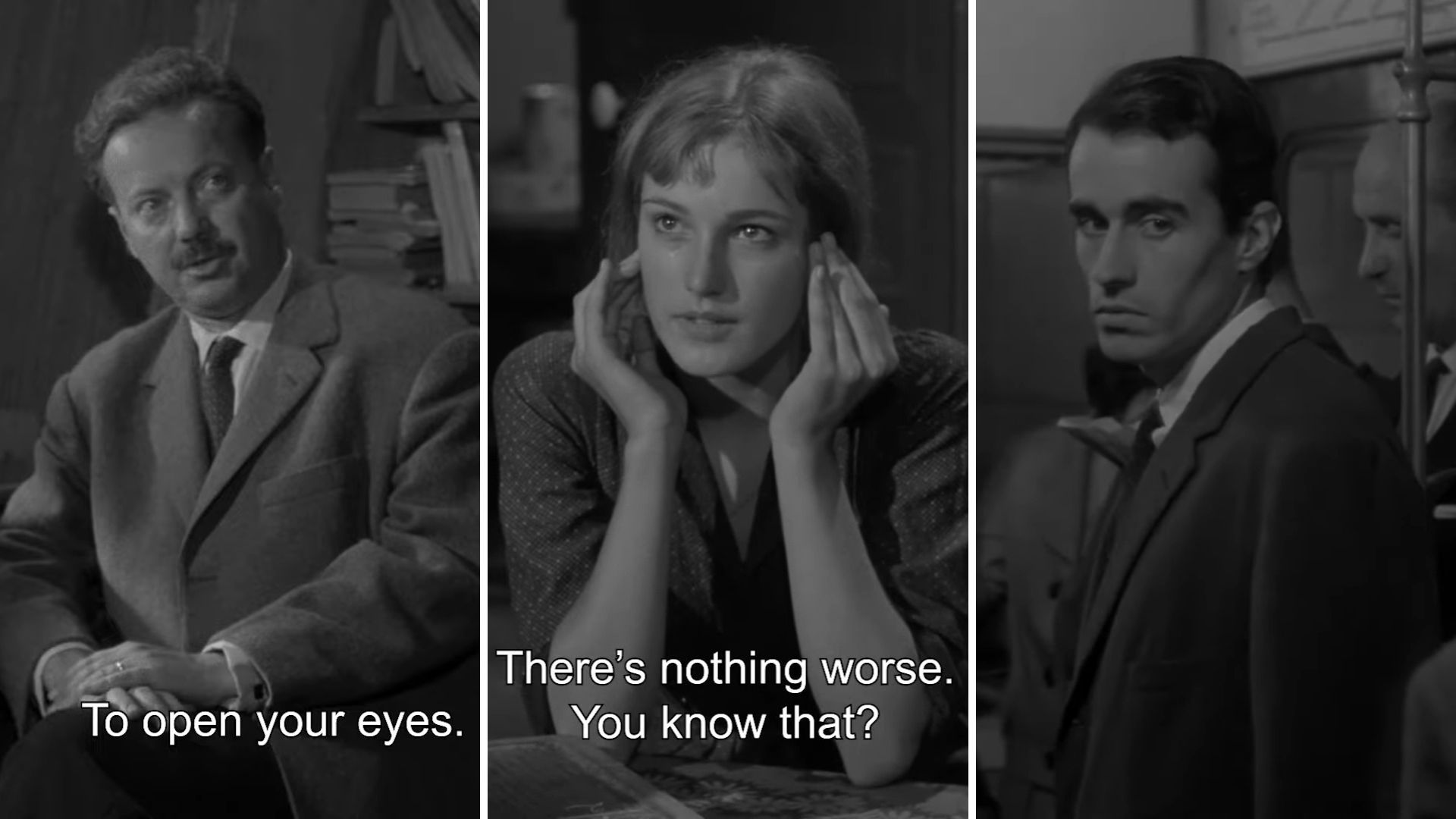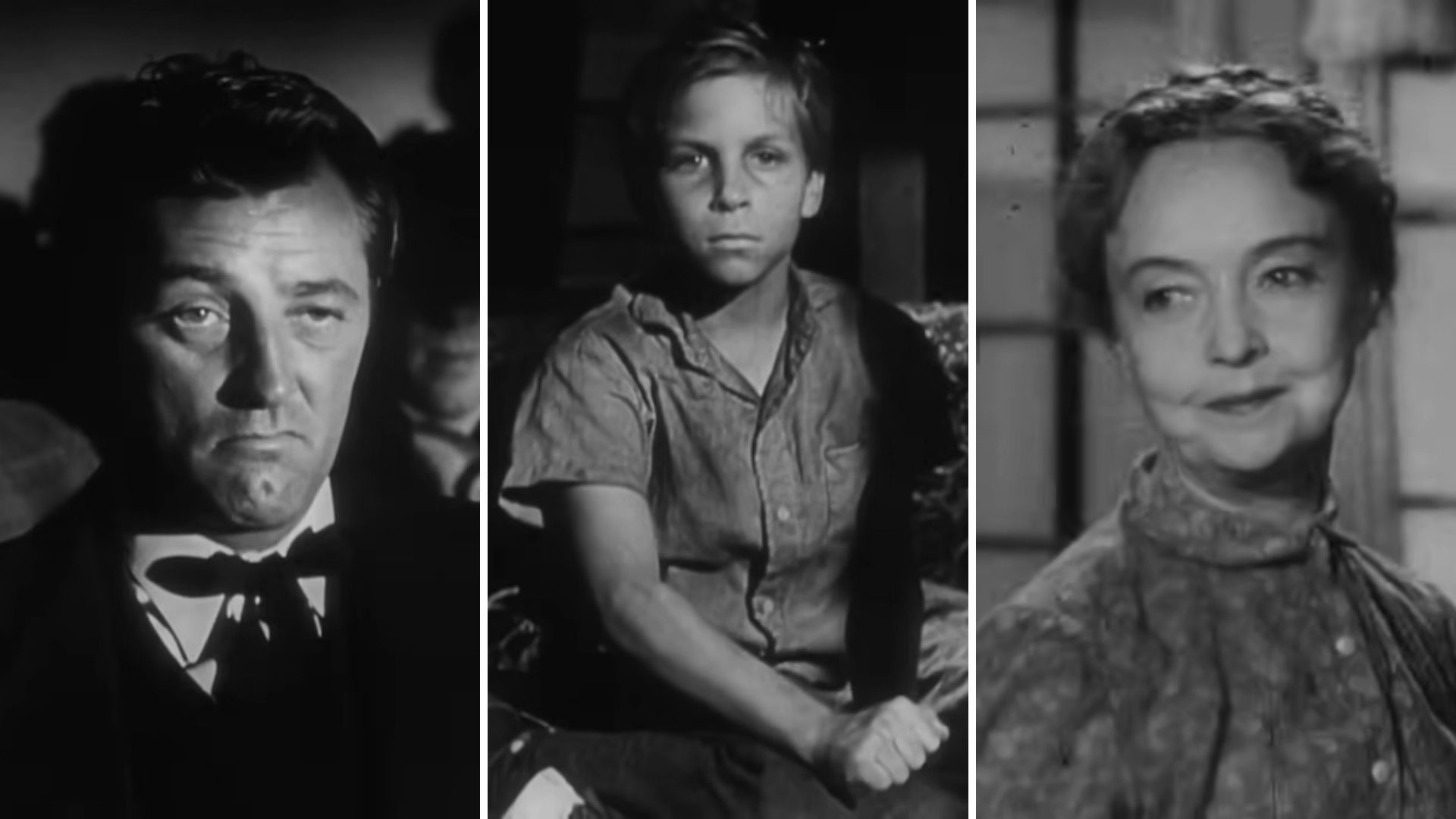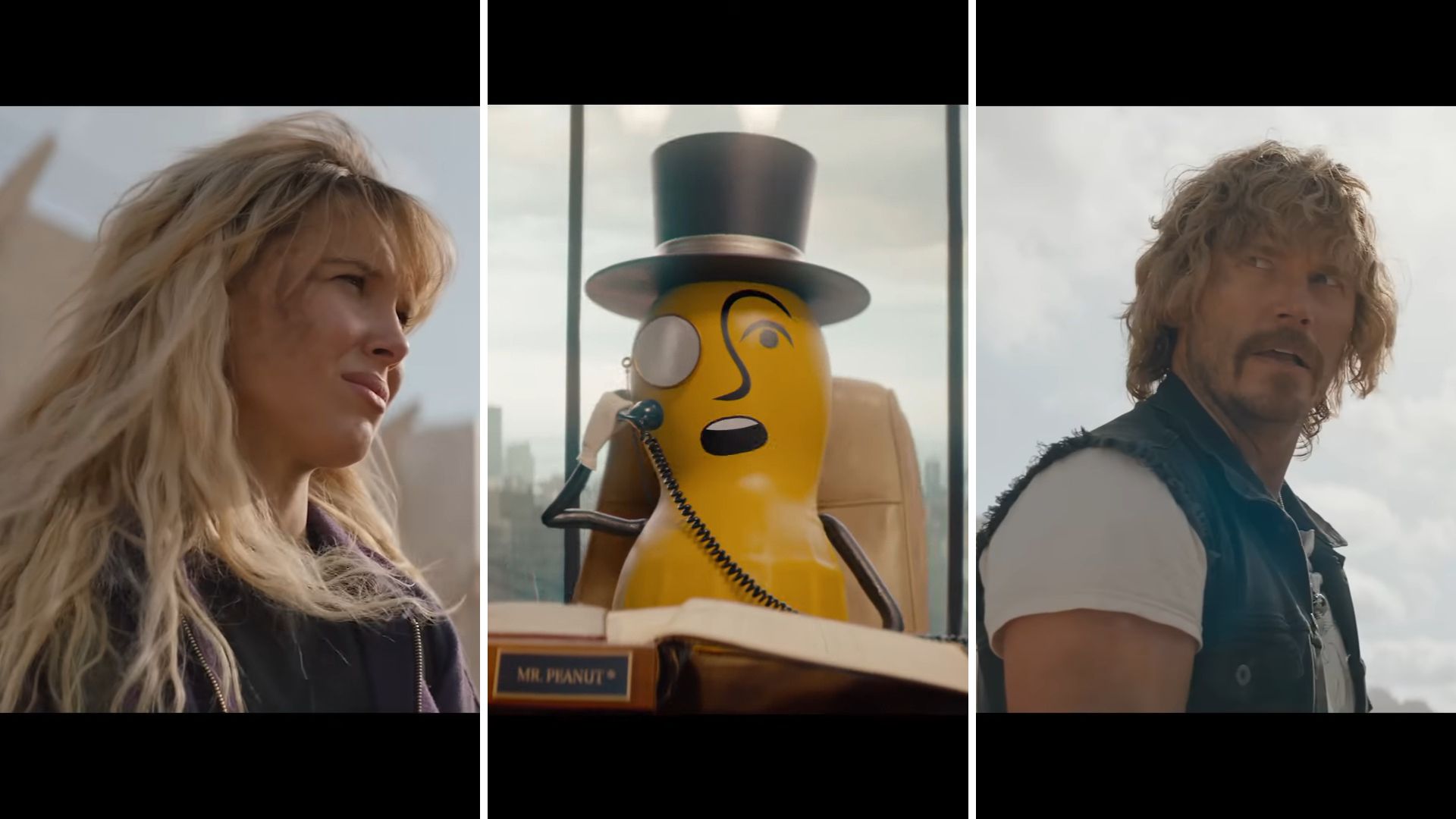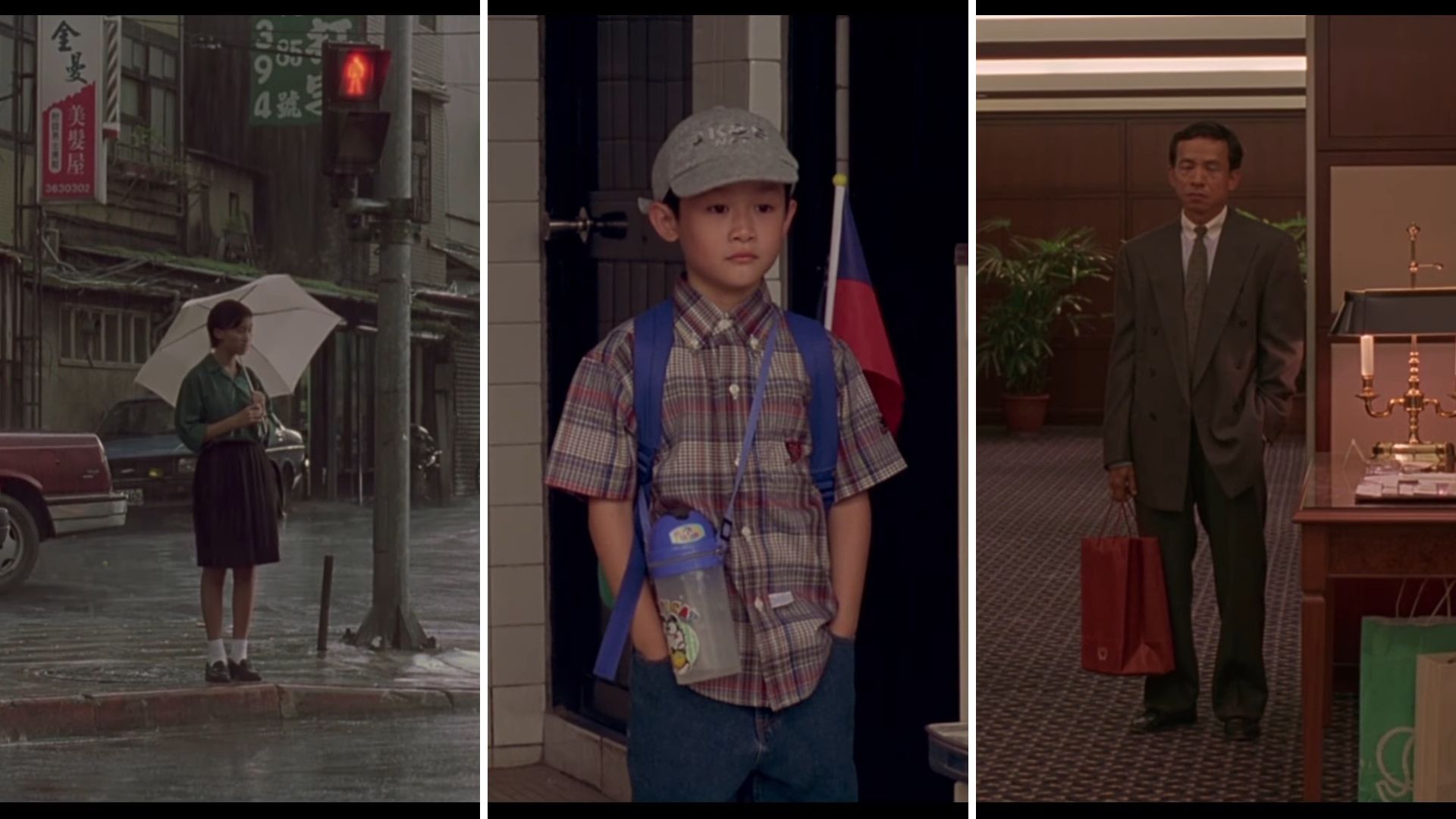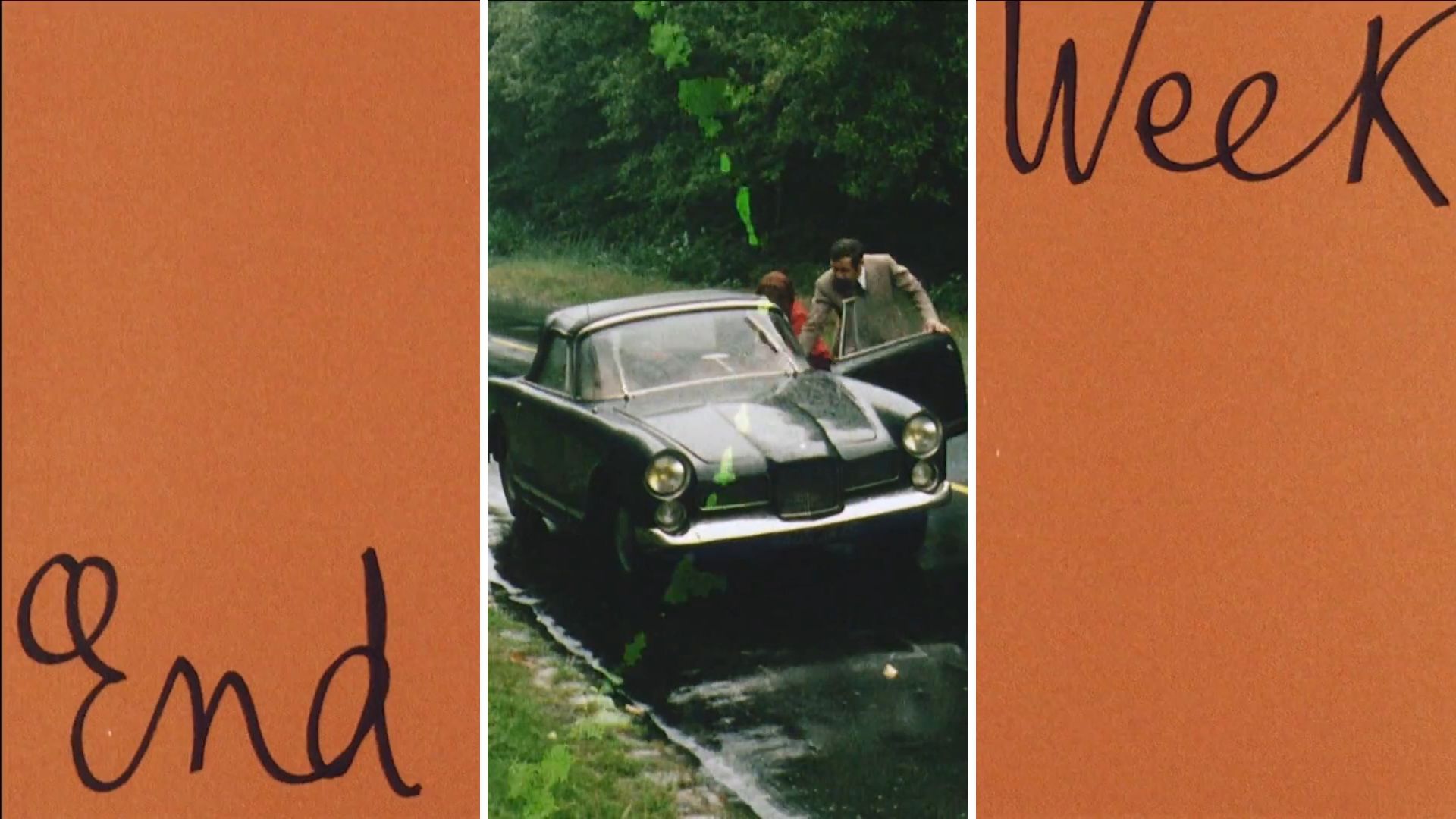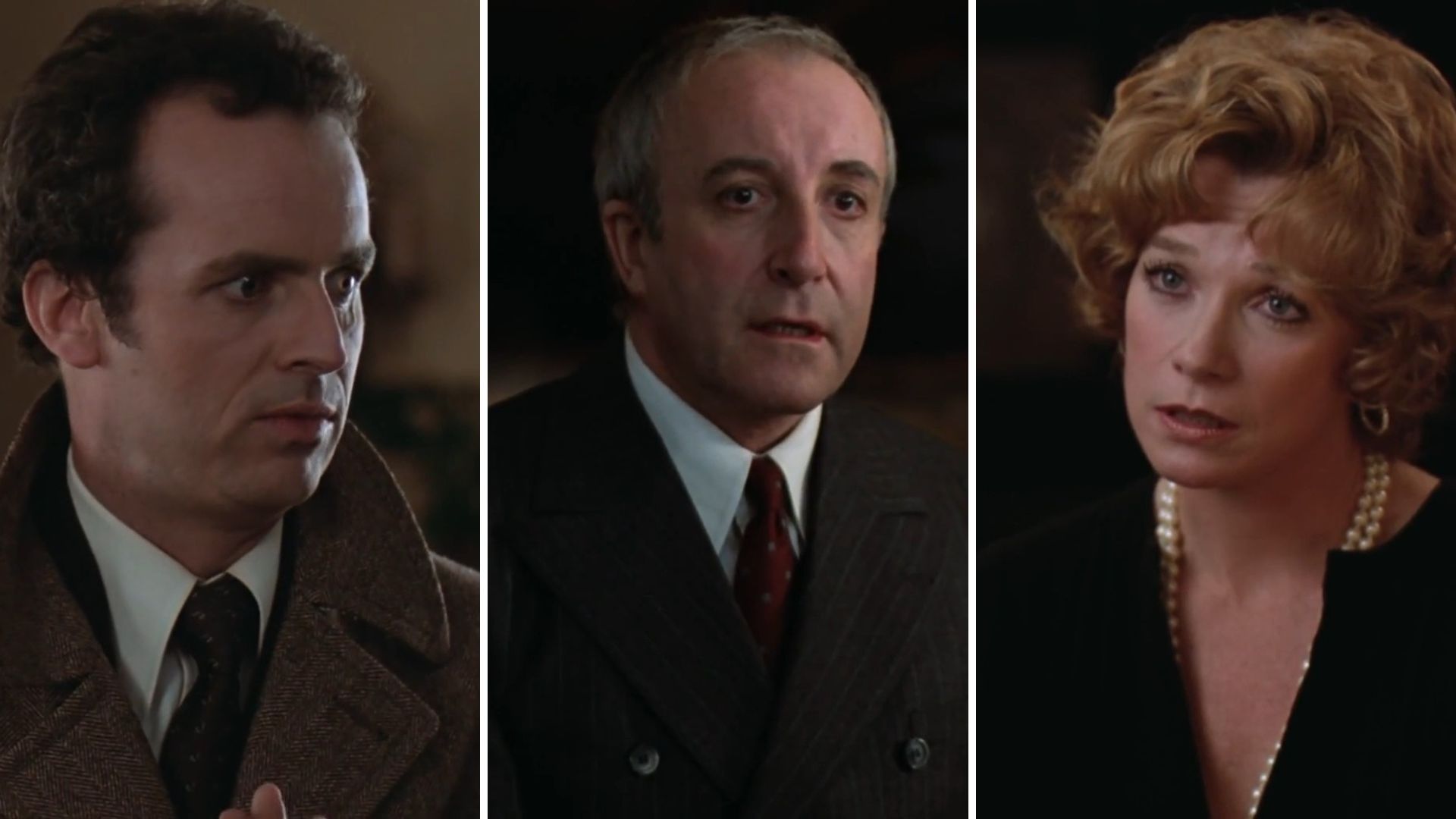
Hal Ashby’s 1979 film Being There is a hilarious satire of white privilege and political theater. It’s a film that is even more relevant today than it was in the 70’s. This film is based on the 1970 novel of the same name and stars Peter Sellers in what is probably his finest performance alongside other film legends like Shirley MacLaine and Melvyn Douglas.
Being There is so biting in its humor but it never dives into mean territory. This film has a sort of love and charm for all the characters in it. Even those who fall into greatness and others who have seemingly earned it. It’s refreshing to see a take like this in 2025, as a film like this today would not be so polite in its subjects. Being There retains a feel-good charm while poking fun at the elite class.
Pink Panther
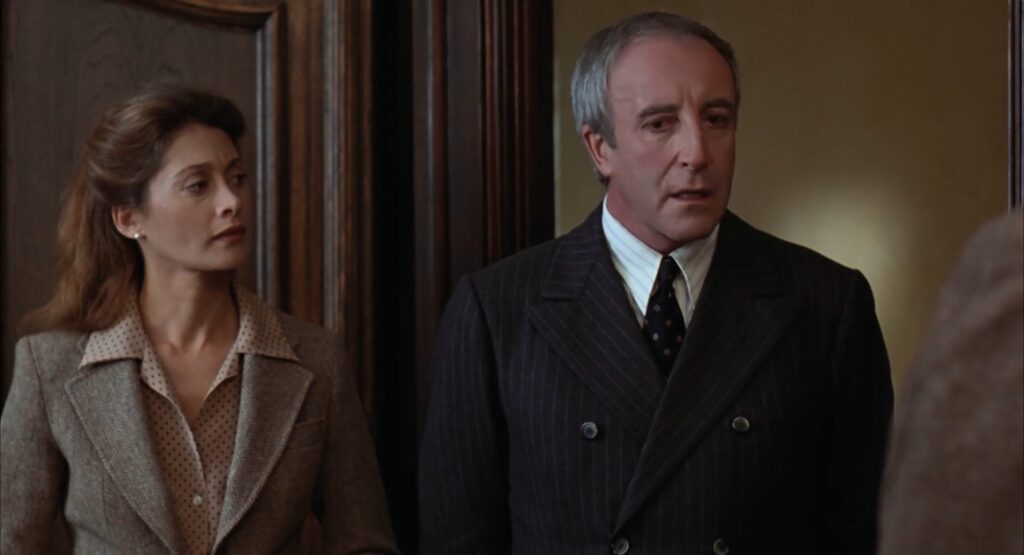
Peter Sellers is probably best known for his role as Inspector Clouseau in the Pink Panther film series. These films relied on Sellers’ bumbling physical comedy as well as his childlike charm. Sellers brings these same qualities to his role in being there. That of Chance. A middle-aged gardener with no formal education, an inability to read or write, and a borderline obsessive love of Television.
Chance may be less of an outright bufoon than Inspector Clouseau, but he is just as clueless. After his employer passes away, Chance is forced to brave the big city of Washington DC where he inadvertently charms every wealthy aristocrat he meets.
The Emperor & His Clothes
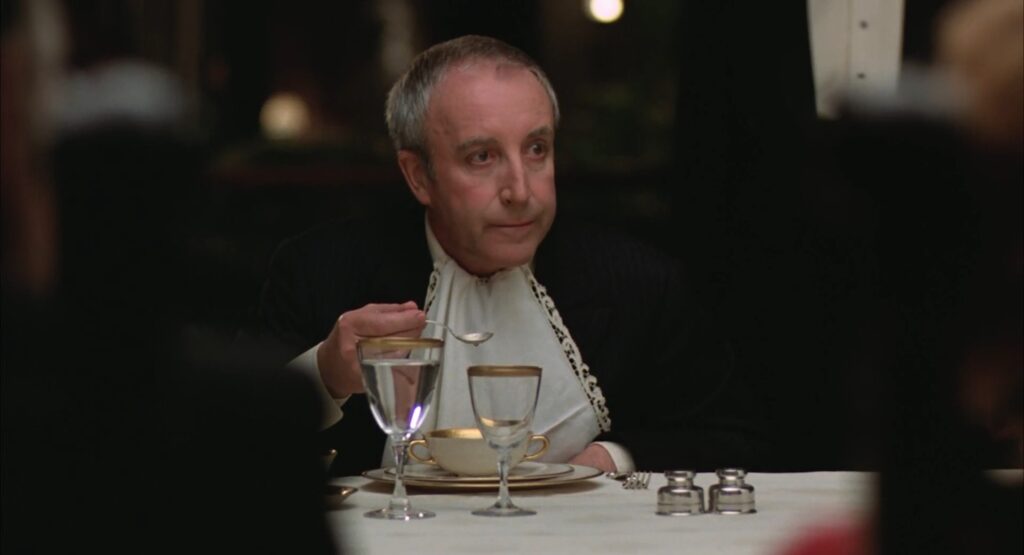
This conflict is the main propulsion of Being There. Chance is a very lovable, but totally dependent middle-aged man. He cannot cook his own meals, he cannot prepare his own wardrobe, and he’s never been in a car. Yet despite all these shortcomings, Chance becomes a heavily favored and highly powerful person in DC. Going so far as even being mentioned as a candidate for president by the end of the film.
It plays a little bit like a reverse “The Emperor has no clothes”. In that story, a wealthy emperor is conned into purchasing clothes that are “invisible” to anyone who is incompetent or stupid. The men clearly see nothing, but no one wants to admit they cannot see the clothes for fear of being ostracized as a stupid incompetent person. In Being There, Chance is frankly an incompetent stupid person, but no one around him can see this. He is lavishly praised for his down-to-earth cadence and simple-to-understand metaphors, but those only come because Chance is confused by the questions. It’s a con, but an accidental one with no malice, which makes this film even harder to pin down.
Elephants & Donkeys
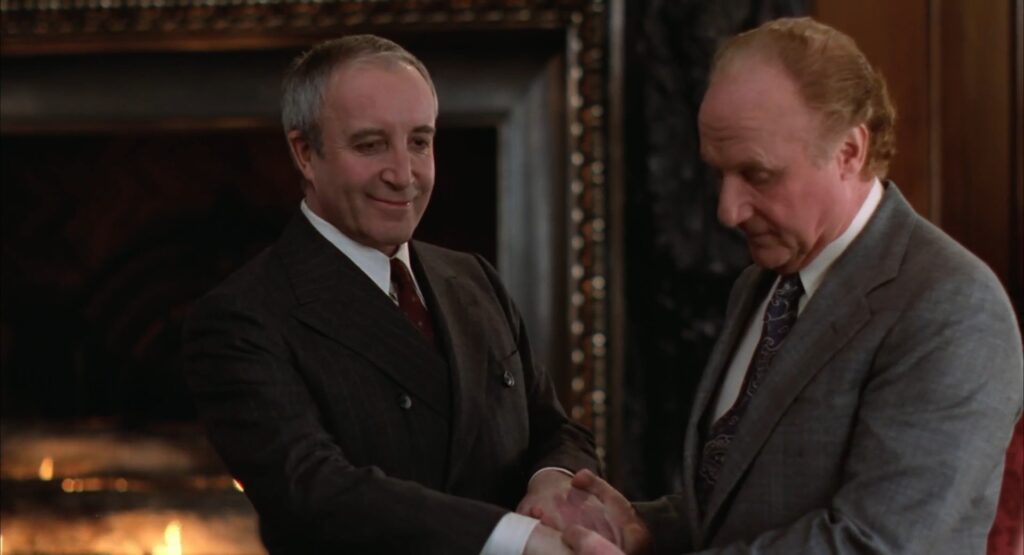
Chance, who is mistakenly referred to as Chauncey Gardiner for most of the film, infiltrates the highest ranks of American politics. Going so far as having the ear of the President early on in the film. Whenever a question is asked that Chance doesn’t understand, he magically somehow brings the conversation towards gardening. The only subject, aside from television, he knows anything about. He explains gardening in the most infantile of ways. Plants won’t grow in the winter, but they’ll come back in the spring. They need water and sunlight to grow. Some need more sun, while others prefer the shade. It’s all simple third-grade science lessons, but everyone listening adds context to these statements that aren’t there. They assume he’s talking about the economy and using gardening as a metaphor. It’s a thin logic at best, but it makes most of the interactions pretty hilarious.
We, the audience, know the truth about Chance. And so does Louise. The former maid who took care of Chance at his previous employment. When seeing Chance on TV, she is the only one brave enough to say the emperor is wearing no clothes. And stamping it with an uncomfortable truth. Well-dressed, polite white men typically get away with anything.
Heroes & Villians
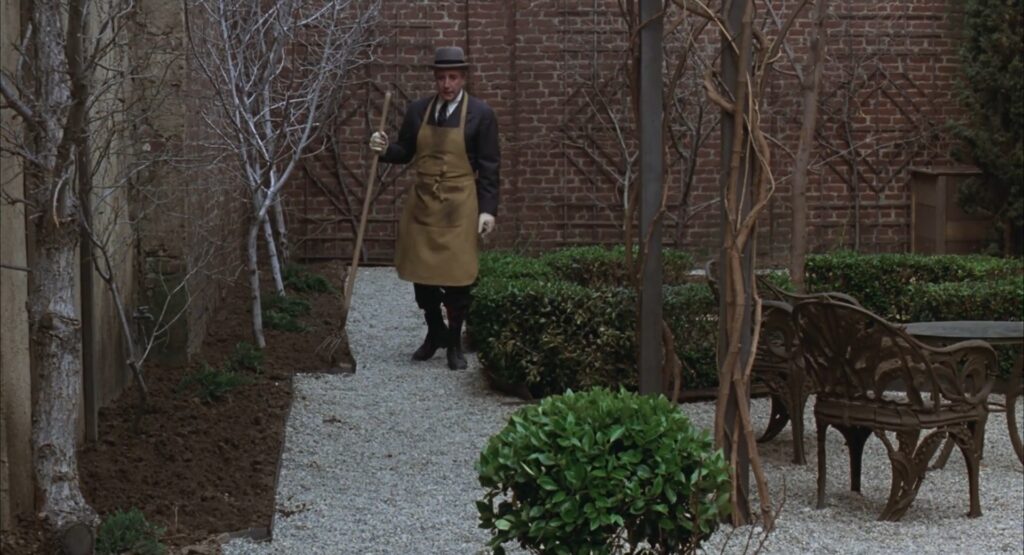
Being There is a very easy watch and an incredibly fun movie, but there is little conflict throughout the film. We are kind of rooting for Chance, but also just amazed at how far he is getting in life. We want him to succeed but also realize he has no business holding the type of power he’s being given. That’s why Louise’s statement is so uncomfortable. Almost the only uncomfortable moment in the whole film. It’s the first time we really stop to think about how and why this is happening. Is it incompetence on everyone’s part? Is it an inability to discern profound statements from gobbledegook? Or is it just that when a white man with a nice suit arrives, everyone tends to take him seriously? No matter what nonsense he’s spewing.
Chance is an appropriate title for the hero of the film. No doubt an on-the-nose reference to his incredible luck in rising through the political ranks. But Chance is also an enigmatic character, not just to those around him, but to us watching him as well. This is all made the more perplexing with a remarkable, constantly discussed ending.
Walk on Water
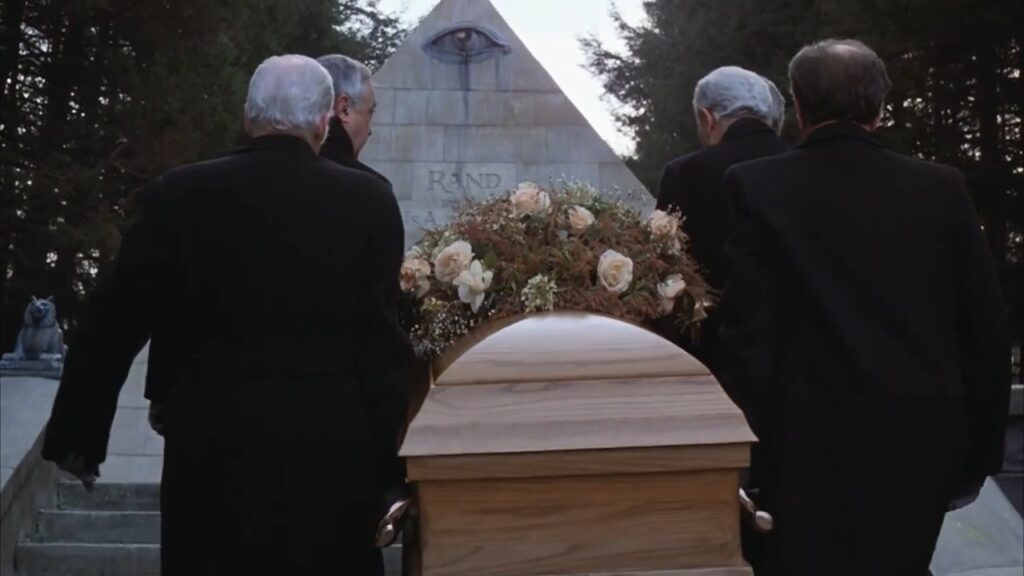
In the film’s final moments, Chance’s friend and uber-wealthy counterpart Ben Rand has passed away. Chance is seemingly set to inherit his entire fortune, company, and even his wife. At the funeral, Chance slips away to tend to a small tree in need of repair. After repairing the tree, Chance takes a stroll on a lake. Walking on water without a care in the world and no idea of a reason why he couldn’t.
This ending is confounding because it’s the first supernatural thing to happen in the film. Every other move chance has made has been improbable, but nothing defies the laws of physics. Now though, we have some evidence that he may not just be lucky, maybe he’s something more than that.
The Ending
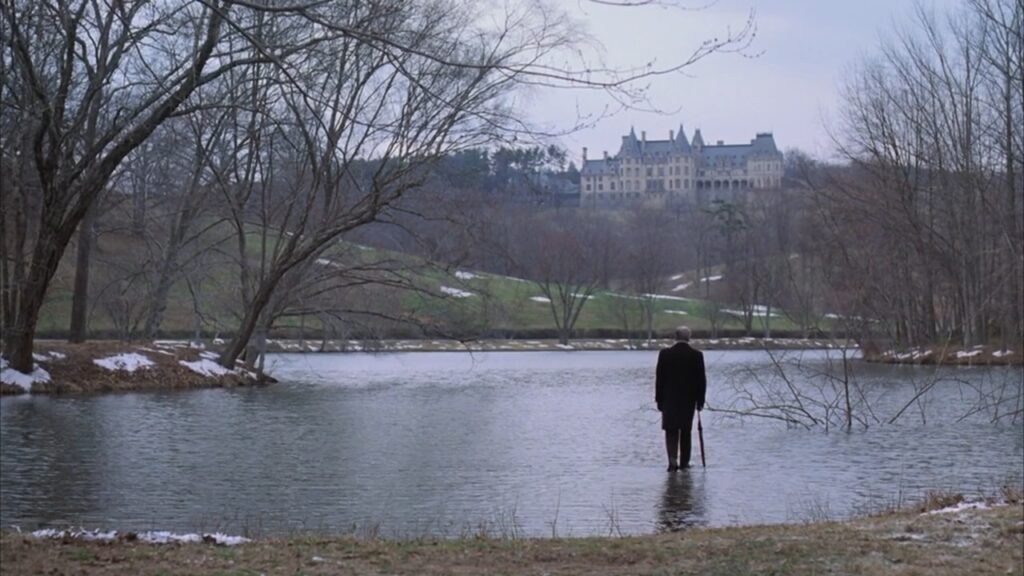
There are two readings I have of this perplexing ending. The first and most cynical is that Chance is more than what he appears. He has just been toying with everyone, even the audience, into thinking he’s a simpleton. But in reality, he’s much more than that and has been able to ascend to power through the appearance of a dimwitted man. This would give credit to themes of power and incompetence, showing how easy it is for someone to hide their true intentions and elevate themselves through manipulation.
But I don’t really like that reading. I think of Chance as a pure character. One who is lucky and simple sure, but also someone who hasn’t been tarnished by the burden of knowledge or understanding. My reading, the one I like, is that Chance walks on water simply because no one has ever told him he can’t. He may be simple, living in someone else’s house, a benefactor to their money and spouse, but he does nothing manipulative in the movie to get these things. He is simply a kind man who lends an ear when it’s needed and speaks of his love of gardening when given the opportunity. The ending is enigmatic because Chance himself is an enigma. Not because he gains wealth and power, but because he never asks for it. He’s content to watch TV and tend to the garden. But if you want him to be president, well that would be just fine as well. And if he needs to walk across the water, well I suppose he could do that also.



